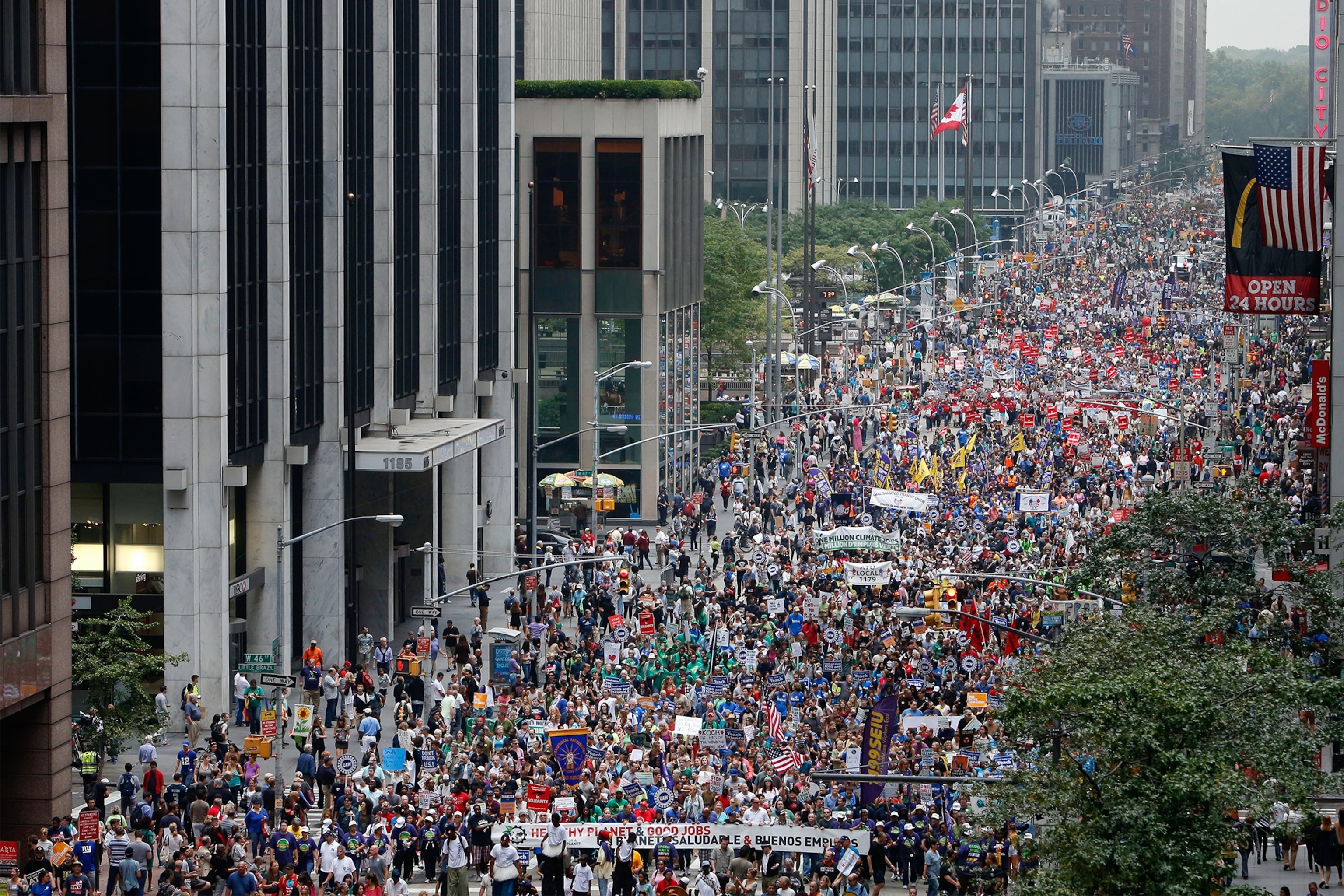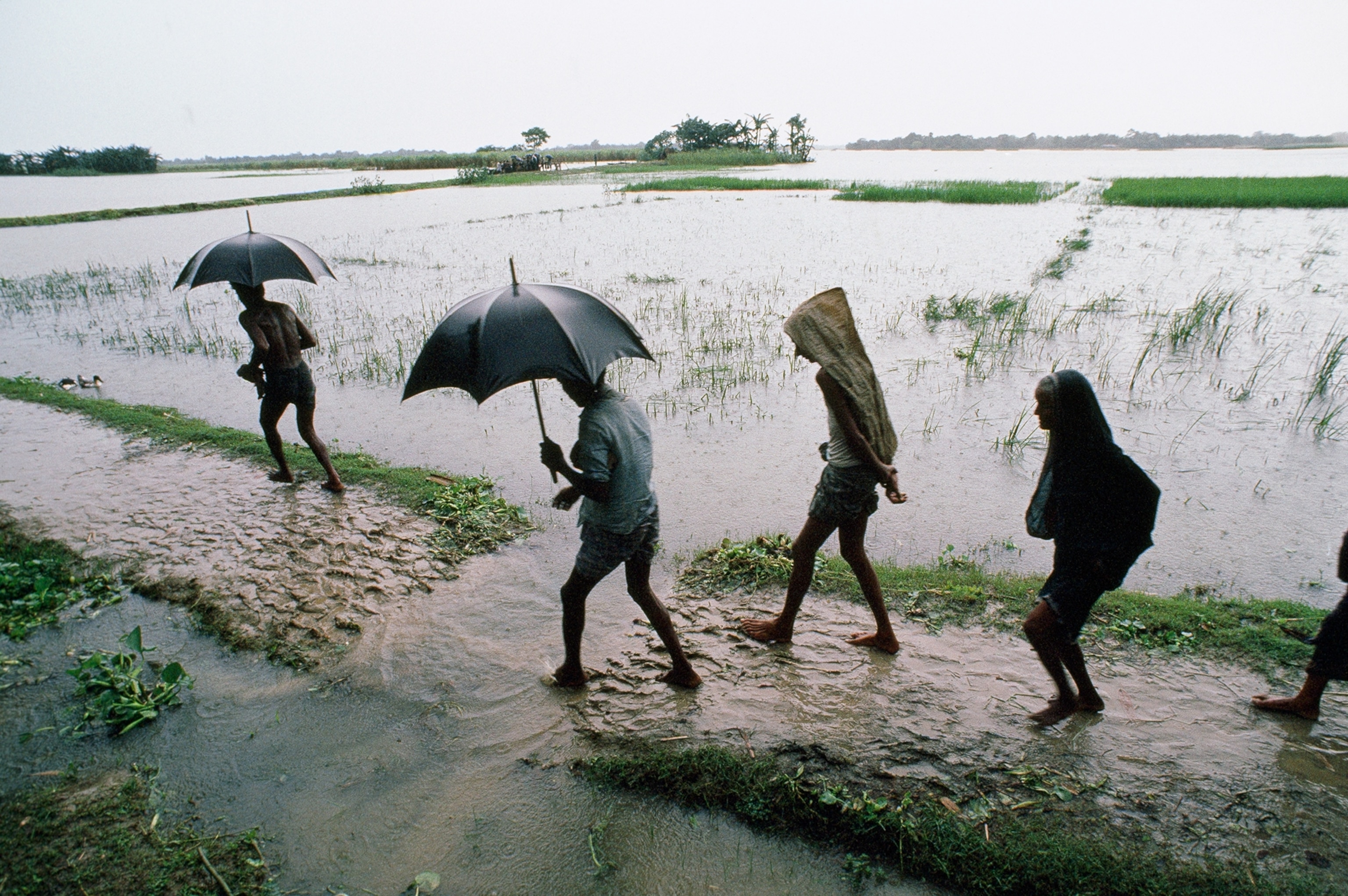
3 Key Takeaways From This Week's UN Climate Summit
A new global strategy on climate change? Not yet, but there was news.
NEW YORK—This week's United Nations Climate Summit didn't forge a new global strategy to stave off the most alarming effects of climate change, such as dramatic sea-level rise and extreme weather. But no one was expecting such a sweeping development from the Tuesday event.
UN Secretary General Ban Ki-moon convened the summit, which drew more than a hundred heads of state, to encourage countries to adopt more ambitious policies to combat climate change. He urged greater efforts in the 15 months before world leaders gather in Paris at a meeting of the United Nations Framework Convention on Climate Change, which is slated to produce a new global strategy on the issue. (Read "When the Snows Fail" in National Geographic magazine.)
This week's summit did yield important news going into next year's negotiations. Three key takeaways:
1. A movement to fight climate change has real people power.
The most surprising development of the summit didn't unfold in the halls of the UN. It happened two days before the summit, when an upstart environmental group, 350.org, organized a march through Manhattan that attracted thousands of people (official crowd estimates for such marches are notoriously unreliable). Hundreds of smaller demonstrations were staged around the globe. The turnout, especially for the New York march, was far greater than anyone, even organizers, expected.
"Our citizens keep marching," U.S. President Barack Obama said in his Tuesday address, acknowledging the protest. "We cannot pretend we do not hear them. We have to answer the call."
Asked this week how the summit would impact ongoing negotiations, the U.S. Department of State's special envoy for climate change, Todd Stern, started talking about the impact of the march instead, calling it the biggest climate demonstration ever.
"You had 400,000 people on the streets of Manhattan," Stern told reporters at the summit's conclusion. "You have to say that that matters."
The UN's Ban marched in the demonstration, gushing about the experience in his Tuesday speech. "Two days ago I was part of a massive people's climate march in New York," Ban said. "I was overwhelmed by the energy of the tens of thousands of people."

2. More companies are recognizing that halting deforestation is good PR.
The biggest tangible result of the summit was a commitment by nearly 40 companies, including many big multinational corporations, to do their part to slow and eventually stop the loss of forests.
The companies include Asia Pulp and Paper, Kellogg's, Nestle, Johnson & Johnson, Walmart, and Procter & Gamble.
Forests store carbon dioxide, and deforestation is a major contributor to the concentration of heat-trapping gases in Earth's atmosphere. The companies, together with 32 countries, pledged to do their part to stop deforestation by 2030.
This was largely an aspirational goal without consequences for failing to reach it. And one key country was missing from the list: Brazil, home to the Amazon rain forest.
However, companies and countries did make some specific commitments to work toward this goal. For instance, the world's three largest palm oil companies recently pledged to source all their oil from suppliers that do not chop down forests. As part of the UN declaration, they agreed to work with the Indonesian government to develop a legal backbone to add teeth to their pledge.
"Many of these companies that are signed on are the historic biggest players in deforestation in places like Brazil and Indonesia, and for them to come before the world and say that they're going to take steps to reduce deforestation in their supply chain is pretty powerful," said Jake Schmidt of the environmental group Natural Resources Defense Council.
Though the declaration isn't binding, environmentalists said it's important because it shows industry is agreeing to address the problem. "Imagine Exxon lobbying for cap and trade," said Joel Finkelstein of Climate Advisers.
Why did the companies do it? To keep customers happy.
"Consumers have sent companies a clear signal that they do not want their purchasing habits to drive deforestation, and companies are responding," said Paul Polman, chief executive officer of Unilever, a consumer products company.

3. There's growing pressure to help the world's most vulnerable countries.
One reason Ban convened the summit was to try to generate a competition among world leaders. He wants them to offer increasingly ambitious commitments to reducing greenhouse gas emissions and to helping poor countries adopt clean energy.
French President Francois Hollande was one of the first to throw down. On Tuesday, he announced that his country will pour $1 billion (U.S.) into the so-called Green Climate Fund. He called on other nations to follow his example.
Five years ago, rich countries promised to assemble a big pot of money to help poor countries invest in clean energy and mitigate their risks from climate change. The idea was that rich countries created the problem of global warming by burning fossil fuels, and so are responsible for the resulting risks to poor countries.
The Green Climate Fund is just starting to get organized. Germany has offered $1 billion, and in addition to France's pledge at this week's summit, South Korea promised to increase its contribution to $100 million. Denmark, Norway, Mexico, Luxembourg, and Indonesia also made pledges.
The commitments are just a beginning. But they'll be seen as rich countries "making good on existing international commitments as [they] move toward negotiating the next commitment," said Peter Ogden, a former Obama administration official and director of international energy and climate policy at American Progress, a liberal think tank.
There's a lot riding on the Green Climate Fund. In fact, some observers of climate talks believe it could influence whether the international community will come to agreement around a new climate strategy in Paris next year.
Island nations that are vulnerable to sea-level rise and African nations that face drought, for example, are depending on the rich countries to live up to their promises.
If it's not well financed, "it will sour countries on a new deal," says Lou Leonard, a vice president at the World Wildlife Fund (WWF).